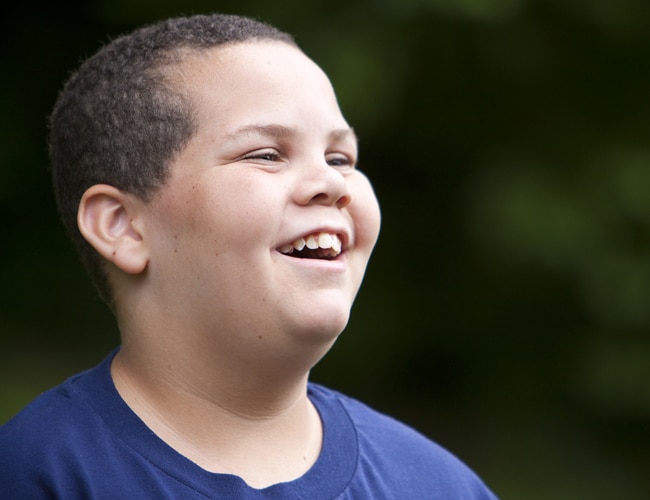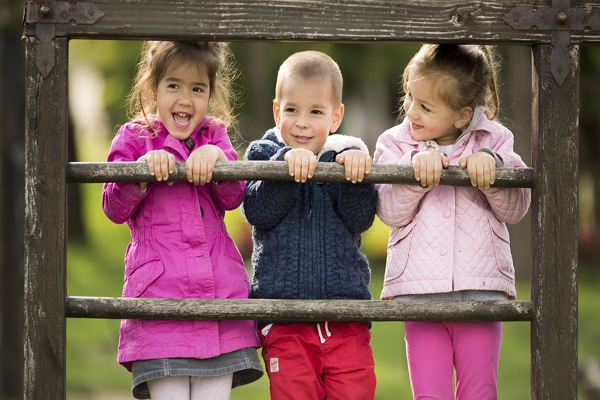Did You Know?

Research project is guided by steering committee
February 15, 2021When the BC Healthy Connections Project announced its first results, via a paper in the Canadian Medical Association Journal Open, researchers were pleased.
The study had shown that the program being examined — Nurse-Family Partnership — reduced the number of cigarettes used by smokers during pregnancy and reduced prenatal cannabis use for all participants.
But, then, a nurse spoke to a member of the BCHCP steering committee. “Is this a good news story?” she asked.
“At first, this question took me aback,” says Nicole Catherine, Scientific Director of the project. “We knew it was a good news story — a positive result — but then we realized that the tone required by academic journal publication is so low key, that our communications needed to be refined for sharing with our policy and practitioner partners.”
Catherine says she was grateful to get this feedback thanks to the group’s steering committee, a seven-member board established in 2012 and involving a sustained and reciprocal research-policy-practice partnership.
Members include senior policymakers from the BC Ministry of Health, the Ministry of Children and Family Development and the Ministry of Mental Health and Addictions, as well as senior scientific team trial leaders.
At the start, the committee met every two weeks (via teleconference) addressing crucial issues such as study design, eligibility criteria and the interpretation of mixed trial findings from the Netherlands and England.
As the trial continued, meetings dropped to once monthly, providing advice on recruitment closing, data collection completion and communicating the positive prenatal trial findings.
Now, the group meets every two months, continuing to provide valuable advice and feedback as the scientific team continues with the primary outcome analysis, relating to reducing childhood injuries.
“We are very grateful to all members of the steering committee for their continued involvement in this important project,” Catherine says.

LGBTQ+ kids can thrive
February 8, 2021Most LGBTQ+ youth successfully navigate adolescence and thrive as adults. Yet everyone around these young people can help create conditions that further ensure they flourish. For instance, schools can use gender-neutral language, model acceptance, be aware of LGBTQ+ issues and create positive environments. For more information, see Vol. 11, No. 2 of the Children’s Mental Health Research Quarterly.

Schools can help reduce depression
February 1, 2021Most children spend more than a third of their waking hours in school. So, beyond academics, schools as a venue have tremendous mental health potential. For example, students in schools with safe environments, including high levels of peer and teacher support, have a lower risk for depression. For more information, see Vol. 8, No. 4 of the Children’s Mental Health Research Quarterly

BCHCP research faces minimal impact from the pandemic
January 25, 2021The COVID-19 pandemic has killed more than two million people worldwide, put extraordinary pressure on mental health (especially that of children), and affected the financial wellbeing of frontline workers — cleaners, grocery store clerks and other essential services.
But it also has an impact on other areas, including that of researchers. The BC Healthy Connections Project (BCHCP) — a scientific evaluation of the Nurse-Family Partnership program (NFP) — has been fortunate that the pandemic has resulted in only minimal effects.
“We are lucky that all of our in-person work was finished before the first lockdown, says BCHCP Scientific Director Dr. Nicole Catherine, referring to the order by Dr. Bonnie Henry in March 2020. “If this pandemic had occurred before we’d been able to complete our in-person research interviews with children, our data would have been seriously affected.”
While some of the visits to study participants could have been conducted by phone, observing the cognitive skills of children would have been close to impossible.
The study — a randomized controlled trial — was launched in October 2013. The study team followed 739 families until all 737 children had reached their second birthday, by November 2019.
The aim of the study is to determine how NFP, an intense nurse-visiting program for young, disadvantaged families, compares with existing health and social services in British Columbia.
Upon notice of the first lockdown, researchers at Simon Fraser University began working from home. Similar to other researchers around the world, they met via Zoom or telephone. Team members could get access to some protected data only by going into their offices and they received special permission to do that, from time to time.
Since the start of the pandemic, the team has published a paper in the Canadian Medical Association Journal Open, showing that delivery of NFP led to a reduced prenatal use of cannabis and, a modest reduction in cigarette use by smokers.
The team is continuing to analyze the data, currently looking at whether NFP has reduced childhood injuries, as well as improving child mental health and development by age two years. “We will know the results later this year,” Dr. Catherine says.

Early childhood programs lead to many gains
January 18, 2021Early child development programs can improve school readiness. Yet they can also do much more. For example, the Perry Preschool program, which was delivered to disadvantaged three- to four-year-olds, resulted in significant benefits up to 35 years after the program ended. These benefits included significantly less criminal involvement and less cannabis and heroin use. For more information, see Vol. 5, No. 4 of the Children’s Mental Health Research Quarterly.

Support foster parents and kids
January 11, 2021When children have to enter foster care they often face significant new challenges, such as repeatedly changing foster homes. Specialized training and increased supports for foster parents can help — and have been shown to improve children’s behavioural well-being, school functioning and residential stability. For more information, see Vol. 6, No. 3 of the Children’s Mental Health Research Quarterly.

Make dating safe for teens
January 4, 2021Intimate relationships should be meaningful and enjoyable, not dangerous. Yet about one in 10 young people experience violence in their dating relationships. This form of violence can be prevented, however, setting the stage for healthy and respectful relationships in early adulthood and beyond. Two programs stand out — Fourth R and Youth Relationships — for having proven success in teaching positive relationship skills to Canadian teens. For more information, see Vol. 7, No 1 of the Children’s Mental Health Research Quarterly.

There is value in making lots of contact
December 14, 2020In conducting a scientific evaluation of a program designed to help young first-time mothers, a research team from the BC Healthy Connections Project went to extra effort to make connections. The team was prepared to contact each participant five or more times to schedule interviews. This ‘extra effort’ was deemed important in reaching participants who were often struggling with issues such as insecure housing and mental or physical health challenges. The scientific evaluation, which started in 2011, looked at the Nurse-Family Partnership, a landmark US program focusing on children born to girls and young women who are facing disadvantages such as low income. The program starts early — in pregnancy, before children are even born — and involves intensive home visits from public health nurses. In Canada and elsewhere, policy-makers and practitioners have traditionally struggled to reach, engage and maintain connections with populations who are facing socioeconomic disadvantage. The BC Healthy Connections Project team has provided a detailed case example, offering strategies for how to make better connections, that last. The team hopes that their paper, which can be seen in the journal, Trials, will inform a shift for researchers, policy-makers and practitioners alike—from seeing disadvantaged populations as “hard-to-reach” to viewing them as “need-to-reach.”

Pro-social behaviour should be promoted
December 7, 2020Parents are crucial in promoting children’s positive behaviours. Parents can do this by interacting in ways that are sensitive and warm, being highly connected to children and setting effective limits. For more information, see Vol. 9, No. 4 of the Children’s Mental Health Research Quarterly.

Good relationships prevent anxiety
November 30, 2020Positive relationships can protect children from problematic anxiety. For example, young people who feel accepted and respected by their parents and cared for by their friends are less likely to develop anxiety problems.For more information, see Vol. 10, No. 2 of the Children’s Mental Health Research Quarterly.
